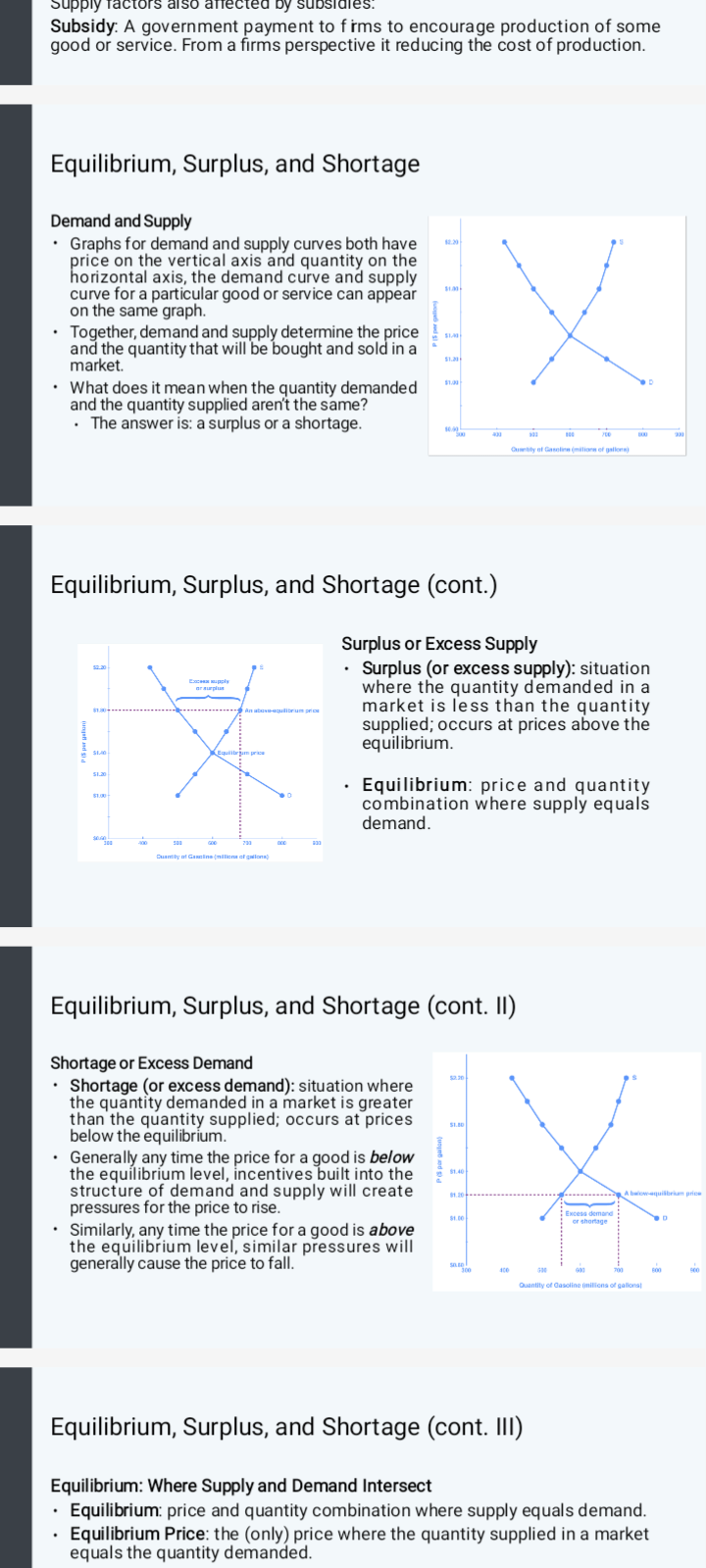What are equilibrium, surplus, and shortage in economics, and how do subsidies affect production costs?

Understand the Problem
The question is asking about the concepts of equilibrium, surplus, and shortage in the context of supply and demand, and how subsidies can influence production costs. This relates to economic principles regarding market behaviors.
Answer
Equilibrium: supply=demand; Surplus: supply>demand; Shortage: demand>supply. Subsidies reduce costs, boosting production.
Equilibrium occurs when supply equals demand. Surplus is when supply exceeds demand, and shortage is when demand exceeds supply. Subsidies lower production costs, prompting increased production.
Answer for screen readers
Equilibrium occurs when supply equals demand. Surplus is when supply exceeds demand, and shortage is when demand exceeds supply. Subsidies lower production costs, prompting increased production.
More Information
Subsidies often encourage firms to increase the production of subsidized goods by providing financial assistance, thereby lowering production costs.
Tips
Avoid confusing surplus with shortage; surplus involves excess supply, while shortage involves excess demand.
Sources
- From Surplus to Shortage: Key Concepts in Market Economics - holistiquetraining.com
- Equilibrium, Surplus, and Shortage | Microeconomics - courses.lumenlearning.com
- Effects of Subsidies: Definition, Impact & Examples - Vaia - vaia.com
AI-generated content may contain errors. Please verify critical information